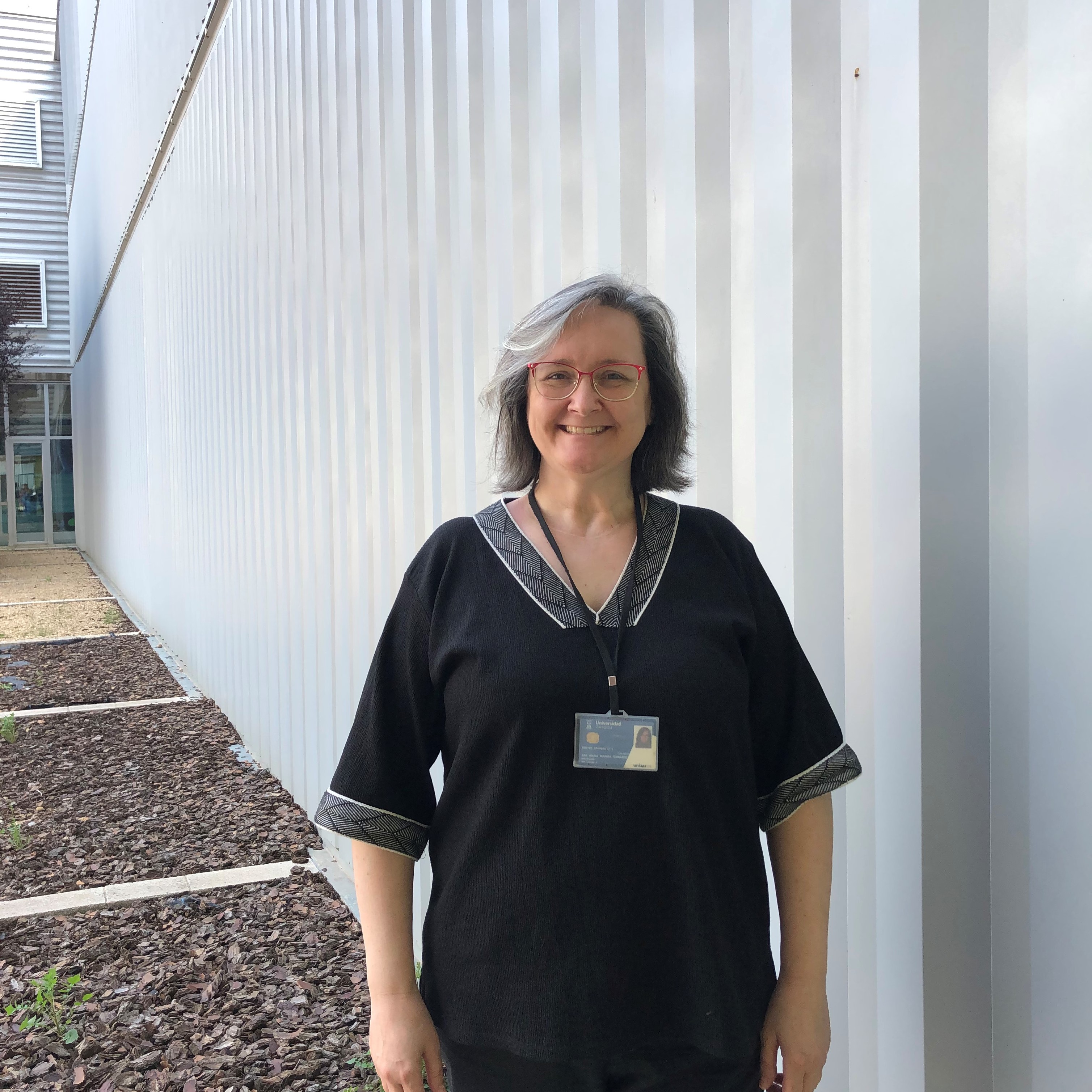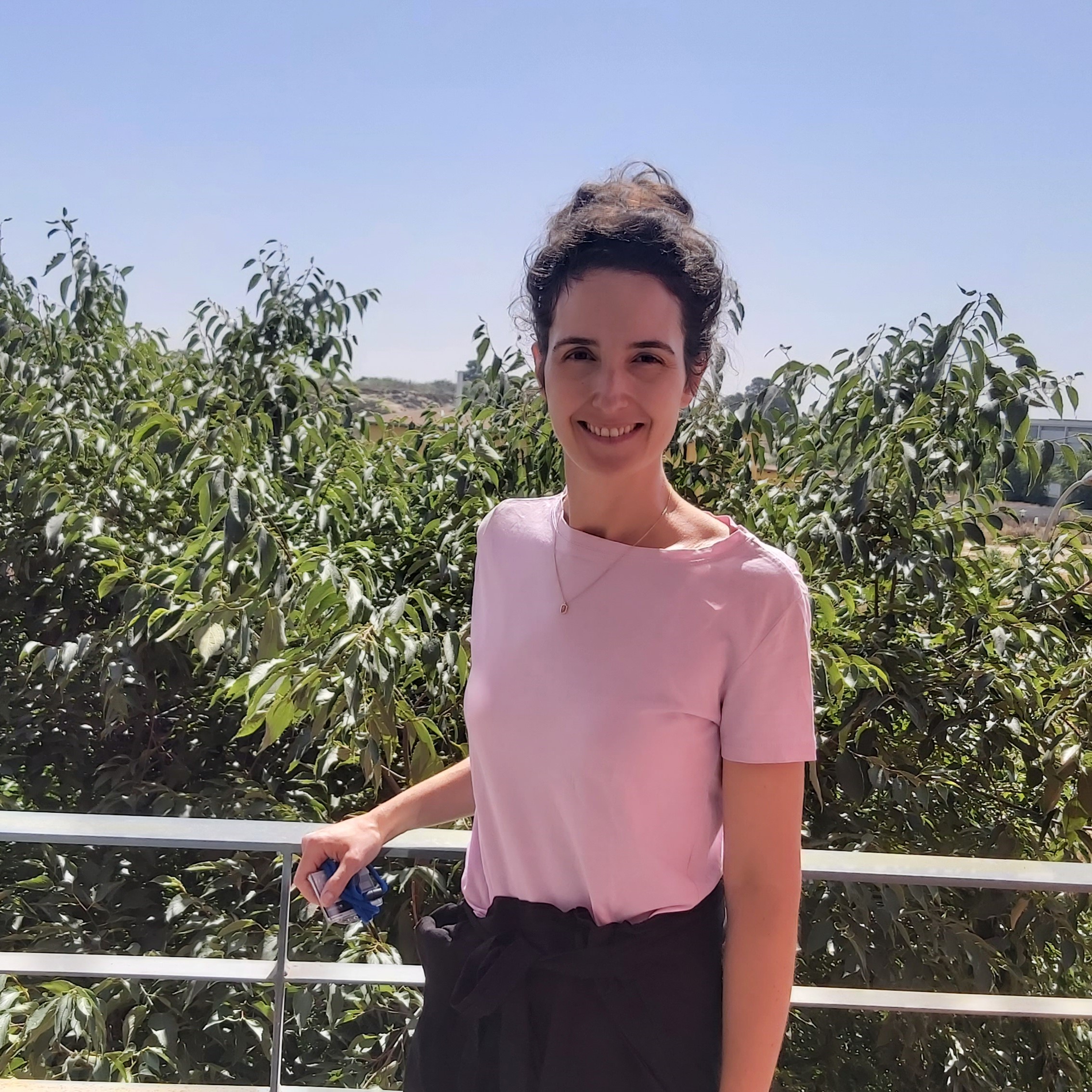
Why did you decide to go into research?
I liked many things, but science was what really caught my attention and more specifically research, because I could discover the answers to many things. Research goes hand in hand with being human and I am curious by nature. Once the basic needs are covered, human beings have this innate search to know where they come from and where they are going, and within all of this is research in scientific areas.
Was it always clear to you what you wanted to do?
At first, no, but I have been dedicated to science since I was a child. I was very interested in engineering construction, although in the end I chose chemistry, and my taste for research came immediately.
You are part of the GATHERS group, what are your main lines of research?
We focus on sustainable research. At the end of the 1990s, beginning of the 2000s, the group was already immersed in the search for extraction processes or separation of materials by sustainable means through the use of CO₂. From this point of view of sustainability, we try to transfer technology to our environment, recovering native plant species or revaluing land through alternative crops that contain assets of interest. The objective is multiple, such as the recovery of wastelands by means of adapted species or the implementation of alternative crops that make it possible to obtain extracts with an economic impact in the pharmaceutical, cosmetic or health fields.
Some projects in progress.
Culturfungi is a project in which, among others, we collaborate with Gardeniers (Atades) and which is dedicated to cultivating mushrooms and fungi at an industrial level for gastronomic or pharmacological use. One of the most important objectives of the project is to open new lines of employment for people with special needs and groups at risk of social exclusion. Gardeniers is in charge of cultivating and obtaining the raw material to later introduce in the market. Our group works on obtaining active extracts with advanced and sustainable technologies that are useful or that make a difference to the species under cultivation.
How long have you been linked to the I3A?
Since its beginnings. We heard about the possibility of joining the Institute and found it very interesting. We contacted withe the director then, Manolo Doblaré, and we have been working there ever since. Our field of specialisation acts as a "knowledge hinge" within the engineering areas, so the fit is perfect.
What would you highlight about the Institute?
For me, one of the most important assets is the support team, management, administration, IT, communication... Without this asset, it would be impossible to do a proper job or reach the required levels of dissemination, projection or scope of our results. On the other hand, the great opportunities it offers, which are linked to the above. Being able to work with colleagues from other disciplines that complement you allows you to respond much more closely to the needs of society.
What do you like most about your profession and what do you like least?
Initiating new challenges, that desire for curiosity that never ends, learning about new problems and providing solutions is what I like most. What I like least, the bureaucratic part. As you get older, you leave the laboratories and the research part to focus more on management, and this is not something we have been trained for. You don't have the opportunity to learn these management tasks and appreciate them either in your degree or in your PhD.
What would you say to someone who is thinking of going into research?
Research is something vocational, if you really don't have a vocation I would say to give it up, and by vocation I mean 24 hours a day, 365 days a year. In the end it's not that it's a badly paid job, but it doesn't pay for the time you spend. It's weekends, it's holidays, it's always having a phone in your pocket, and all that is not included in the salary. So, first of all, whoever wants to be a researcher has to think about whether they really want to/can dedicate all that time, it's something that has to come from within. The next thing I would say to him/her is to be strong and courageous, because it really is a very beautiful and exciting profession. And finally, I would encourage you to go out and see other worlds because unfortunately in Spain research is not valued in its rightful place.
CLOSE-UP...
What did you study: Chemistry at the University of Zaragoza.
A goal: To continue contributing to the development of society, combining science with the promotion of our heritage.
A book: The Name of the Rose by Umberto Eco.
A film: Blade Runner by Ridley Scott.
Hobbies: On the one hand, music, I play the bandurria and the lute in the Zaragoza Music School and in the Jota de Santa Isabel and Aires de Albada schools. I am also a member of the board of directors of the Academia de las Artes del Folclore de Aragón.
Favourite music group: I'm very much a Mecano fan.
Favourite place: Lisbon, I have a special affection for it. I lived there for a while and fell in love with it.
How would you define yourself: As an intense, sincere and loyal person.
